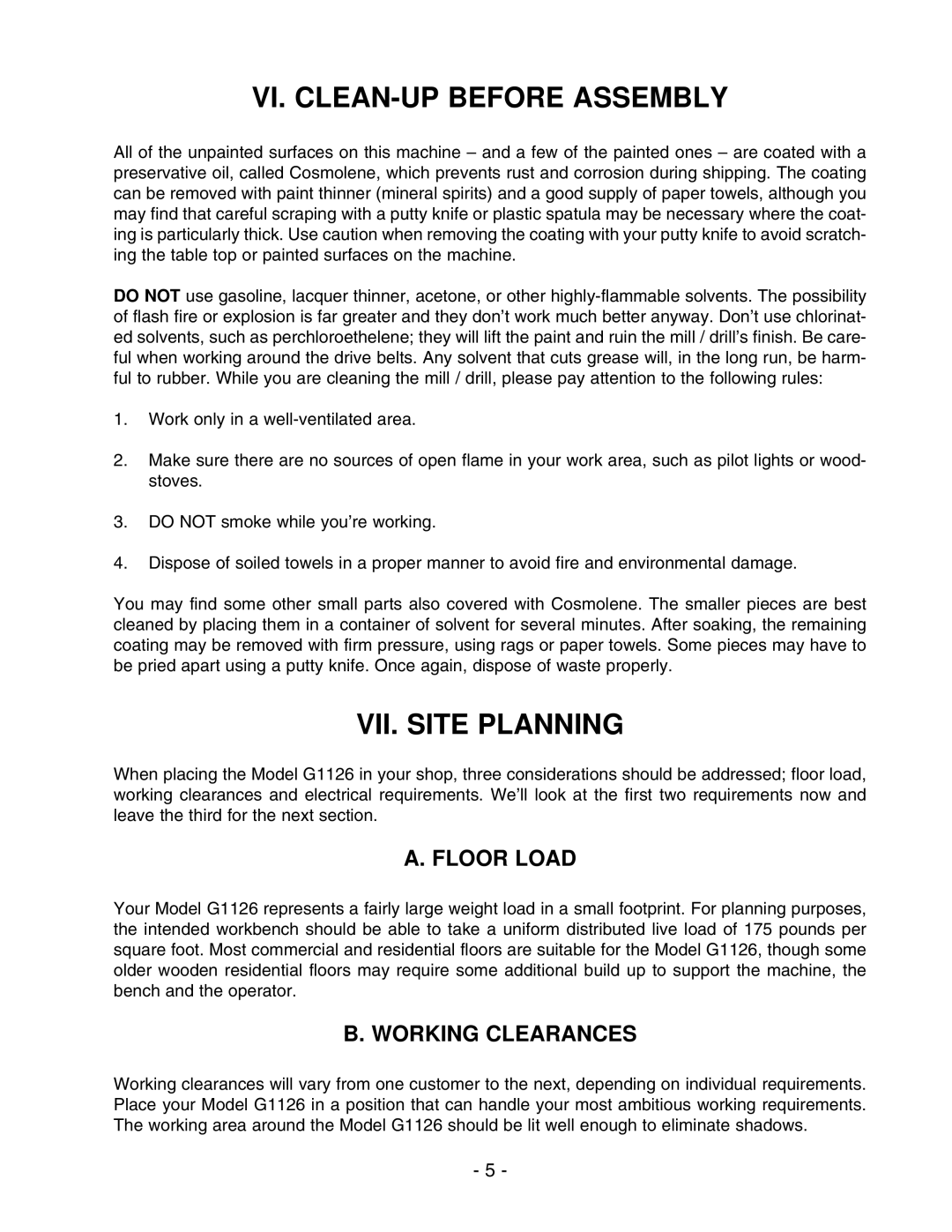VI. CLEAN-UP BEFORE ASSEMBLY
All of the unpainted surfaces on this machine – and a few of the painted ones – are coated with a preservative oil, called Cosmolene, which prevents rust and corrosion during shipping. The coating can be removed with paint thinner (mineral spirits) and a good supply of paper towels, although you may find that careful scraping with a putty knife or plastic spatula may be necessary where the coat- ing is particularly thick. Use caution when removing the coating with your putty knife to avoid scratch- ing the table top or painted surfaces on the machine.
DO NOT use gasoline, lacquer thinner, acetone, or other
1.Work only in a
2.Make sure there are no sources of open flame in your work area, such as pilot lights or wood- stoves.
3.DO NOT smoke while you’re working.
4.Dispose of soiled towels in a proper manner to avoid fire and environmental damage.
You may find some other small parts also covered with Cosmolene. The smaller pieces are best cleaned by placing them in a container of solvent for several minutes. After soaking, the remaining coating may be removed with firm pressure, using rags or paper towels. Some pieces may have to be pried apart using a putty knife. Once again, dispose of waste properly.
VII. SITE PLANNING
When placing the Model G1126 in your shop, three considerations should be addressed; floor load, working clearances and electrical requirements. We’ll look at the first two requirements now and leave the third for the next section.
A. FLOOR LOAD
Your Model G1126 represents a fairly large weight load in a small footprint. For planning purposes, the intended workbench should be able to take a uniform distributed live load of 175 pounds per square foot. Most commercial and residential floors are suitable for the Model G1126, though some older wooden residential floors may require some additional build up to support the machine, the bench and the operator.
B. WORKING CLEARANCES
Working clearances will vary from one customer to the next, depending on individual requirements. Place your Model G1126 in a position that can handle your most ambitious working requirements. The working area around the Model G1126 should be lit well enough to eliminate shadows.
- 5 -
